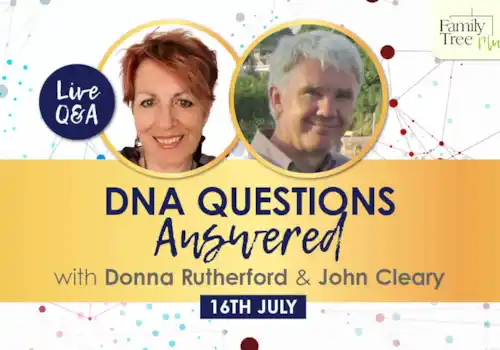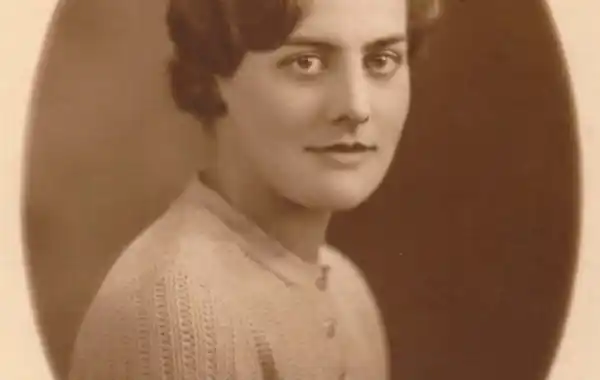Professional genealogist Susie Douglas provides inspiration on how to bring our ancestors to life using the resources within our own memory bank.
‘It’s Life, Jim, but not as we know it.’
During the current Covid19 crisis life is going to change immeasurably for many people. Social distancing and self-isolation will put visits to archives, libraries and events out of reach for now, but this is no reason to halt your research. Instead of reaching for the online databases, why not try something new by tapping into an extraordinary resource that is completely free, requires no travel and is unquestionably unique and personal to you!
I am referring to ‘memoir’, but not in the sense of a chronology or an autobiography. Think glimpses or vignettes that encapsulate moments in time. Memories that have people ‘in action’ to capture their character and mannerisms, or places that you interacted with and or knew as a child.
Bringing ancestors to life through your own personal recollections will inform, and no doubt entertain, current family members as well as generations to come. It's amazing how many little details come to mind once you make a start. What’s more it’s fun to do and can be a shared experience!
What better way to bring a positive focus to more regular chats with relatives, especially the elderly, as they will remember many family members you do not? Perhaps ask them to jot down some of their own memories too. I am trying this with my own mother and so many priceless little snippets have already come to light!
Top tips for mining your memories
I love disappearing into my own memory vaults and having a good old explore but find these key pointers quite helpful when clarity or inspiration is waning.
- Memoirs are written in the 1st person, so lose that formal academic style e.g. replace ‘it is thought’ with ‘I remember…’ Just let the words flow and don’t worry about editing as you go; that can be done later. The important thing is to capture those precious memories as you remember them.
- Keep your focus narrow and don’t over clutter it with too many people. Restrict yourself to the individuals who played an integral part in that particular memory or scene; ‘I remember baking with grandmother who made the most excellent pastries and cakes. As she finished ‘rubbing in’ she would clap her hands, sending clouds of flour into the air.’
- If describing a place you knew well, focus on one object and work out from there. A standout object from my childhood was an old, rather battered grandfather clock in the kitchen; ‘When all was quiet, the old oak-cased grandfather clock in the kitchen could be heard throughout, the regular pulse of the second hand beating like a heart, breathing life into every corner of the house.’
- Try to evoke all five senses not just sight or what something looked like. Sound, smell, taste and touch are important sensations too. The smell of toast always reminds me of my grandparent’s old coke fired Aga; ‘The Aga was a dirty beast whose ashes needed to be vigorously riddled twice daily. Accessed through a small hatch at the bottom and using a long poker, find the teeth, rattle and turn and repeat until the coals were glowing red. Face hot and acrid taste in mouth, the hot ash was carried in a scoop shaped shovel to the ash bin outside. Woe betide a windy day!’
- Describing particular mannerisms or characteristics are the tools by which the reader can come to really know your characters. Although not suffering from any disorder or hitting the bottle beyond her evening ‘nip’, my grandmother had a tremor which was markedly worse when handling hot liquids; ‘We used to watch in trepidation as my grandmother reached for the teapot and shakily tried to pour. Just how much tea would make it into the cup rather than saucer or chequered tablecloth beyond?’ This is also the ‘show don’t tell’ technique, where you place the reader in your own shoes to relive the experience with you.
- Use emotion and take the reader on your personal journey; ‘As I watched her cook, I never tired of the family tales my grandmother would recount using the monogrammed silver cutlery which lived in the chaotic utensil drawer alongside wooden spoons, spatulas and the ‘tattie’ peeler.’
Share your thoughts and tips on writing memoir with #AncestryHour on Twitter, remembering to use the hashtag & to tag in our friends @familytreemaguk. Outside of the live Tuesday chats #AncestryHour is open 24/7, 365 days of the year, meaning a friendly family history chat is never far away!
Susie Douglas MLitt. QG is a qualified Professional genealogist, local historian & writer. She is the founder of Ancestry Hour and the owner of Borders Ancestry, offering qualified, experienced, and professionally accredited family and local history research service for the UK, specialising in the Scottish Borders, Northumberland and Durham.
For more family history advice, subscribe to Family Tree magazine today and receive your first 3 issues for just £3 (usually £15.75). Stay home, SAVE money and start your family tree with our expert help. Click here to claim this offer.








